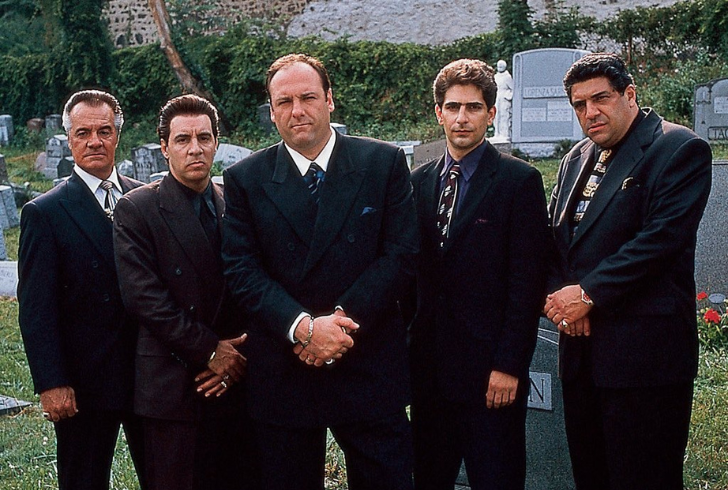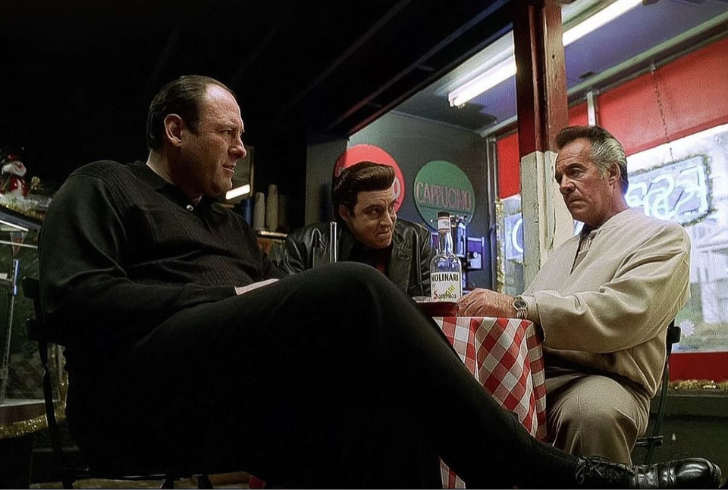When it comes to iconic TV characters, few are as complex and compelling as Tony Soprano. As the lead in "The Sopranos," Tony is a figure who embodies the contradictions and conflicts inherent in the pursuit of normalcy in a world defined by crime, deceit, and moral ambiguity. While many have labeled him a sociopath, such an assessment doesn't fully capture the nuances of his character.
Far from being a cold, emotionless villain, Tony Soprano is someone who constantly wrestles with his own sense of guilt, morality, and family responsibility. His struggles are at the heart of what makes "The Sopranos" such a captivating exploration of the human condition.
Tony’s Complex Relationship with Family and Morality
Tony’s role as both a mob boss and a father is filled with inherent contradictions. On one hand, he is involved in violent, illegal activities that destroy lives, including those of his enemies and his own family members. On the other hand, he is deeply committed to his wife, Carmela, and children, Meadow and A.J. He tries to provide them with a comfortable life, complete with the suburban home and material comforts he believes they deserve. Yet, his dual existence as a criminal and family man creates a constant tension between the desire to be a good person and the necessity of his violent profession.

Instagram | hotradiomaine | Tony Soprano grapples with the conflicting roles of ruthless mobster and devoted family man.
Despite his criminal lifestyle, Tony is shown to care deeply about his family’s well-being. His complex relationship with Carmela is a key example. While Carmela often expresses frustration with his actions, she is also complicit in his world, enjoying the material benefits it provides while grappling with her own moral dilemmas. This dynamic reflects a larger theme in the show: the tension between wanting to live a “normal” life and the inevitable compromises that come with living in a world of crime.
The Role of Therapy and Psychological Conflict
One of the most fascinating aspects of "The Sopranos" is Tony’s therapy sessions with Dr. Jennifer Melfi. At first, these sessions seem like a genuine attempt to better understand his inner turmoil. However, as the series progresses, it becomes clear that Tony’s visits to Dr. Melfi are as much about evasion as they are about introspection. While he expresses a desire to be a better person, he is unwilling to fully confront the darkness within him. Instead, he manipulates the therapy process to suit his own needs, avoiding deep self-reflection in favor of finding ways to justify his actions.
This ongoing struggle is emblematic of Tony’s larger internal conflict: he wants to be a loving, responsible father, but he is trapped in a world that requires him to be ruthless. His therapy sessions are a reflection of this dichotomy, showing that while he seeks change, he is not ready to fully abandon the life that has given him power and influence.
Is Tony Soprano a Sociopath?
There’s a common perception that Tony Soprano is a sociopath based on his violent tendencies and lack of empathy for his enemies. However, this label oversimplifies his character. True sociopathy is defined by a lack of remorse and a complete absence of empathy, traits that Tony does not fully embody. While he is capable of terrible acts of violence, he is also shown to experience guilt and emotional pain over the harm he causes to others, especially those closest to him.
Take, for example, his reaction to the murder of Big Pussy, one of his closest associates. Tony struggles with feelings of guilt and self-loathing after carrying out the act, suggesting that he is not entirely indifferent to the consequences of his actions. Similarly, his relationships with his children further challenge the notion of him as a sociopath.
Unlike his mother, who was emotionally distant and manipulative, Tony genuinely loves his children and wants to protect them from the world of crime. His desire to see Meadow succeed in college and live a life that is separate from his criminal activities speaks to a deeper, more complex emotional side.
The Struggle for Normalcy in a Dysfunctional World

Instagram | borninfluenced | Tony struggles to reconcile his criminal life with his family responsibilities.
At its core, "The Sopranos" is a show about the impossibility of living a "normal" life in a world that is anything but. Tony’s efforts to balance his criminal career with his desire to be a good husband and father are constantly thwarted by the harsh realities of his world. This struggle is made all the more poignant by the fact that, despite his violent and criminal nature, Tony is not entirely devoid of moral instincts. He feels conflicted about his actions, particularly when it comes to his family.
The show’s depiction of Tony’s life is not just a commentary on the Mafia or the American Dream; it’s a meditation on the human condition. Tony’s internal struggles, his inability to reconcile his dual identities, and his attempts to protect his family all speak to the universal challenge of navigating a world filled with moral complexities. His journey is a tragic one, as he ultimately realizes that the life he is trying to build for himself and his family is doomed to fail.
A Freudian Comedy
While "The Sopranos" is often labeled a drama, it also has a darkly comedic element that makes it unique. Tony Soprano’s struggles are not just tragic; they are often absurd, particularly in the way he tries to impose a sense of normalcy on an inherently dysfunctional life. The show’s Freudian elements—its focus on psychological conflict, guilt, and the complexities of family dynamics—are what give it its unique tone. In many ways, Tony’s character is a living embodiment of the contradictions that define the show: he is a loving father and a ruthless criminal, a man full of guilt yet unwilling to change.
Ultimately, Tony Soprano is not a true sociopath. He is a man deeply conflicted by his desires, his responsibilities, and his emotions. His story is one of both tragedy and dark comedy, a reflection of the complex and often contradictory nature of human existence. "The Sopranos" doesn’t just explore the world of organized crime; it explores the human psyche in all its messy, contradictory glory.




